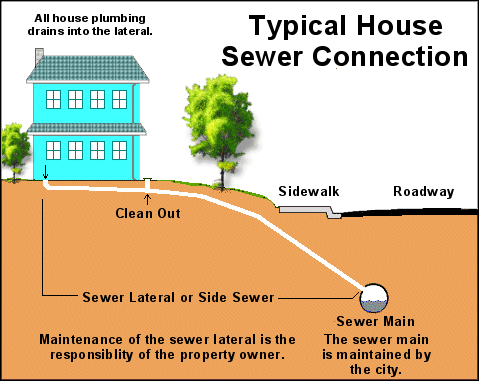Your offer has been accepted. Congratulations! Now begins the "due diligence" phase. The investigative process.
So we get all of the disclosures from the seller who is obligated under California law and the contract to inform you of everything materially that they know about the home they are selling you. Have there been plumbing issues? Has the property been painted in the last 12 months? Any flooding? AND they must inform you to the best of their knowledge of any goings on in the surrounding neighborhood - like airplane noise, fire department noise, disputes with neighbors, etc.
With that information alone, you may decide that you do not wish to proceed with the purchase. That's okay. You are free to walk away, having not spent a dime on inspections. But let's say you are
fine with everything that has been disclosed to you. Well then... on we go.
Next step in the process are the inspections. Notice the plural. First thing you want to do is hire a professional home inspector to look the entire property over and give you his/her professional opinion as to the condition of most components and aspects of the home. They check water pressure, crawl under the house to look at foundation, plumbing, etc. They go into the attack to look at joists and electrical and maybe even encounter a critter or two. The inspector will then provide you with a report detailing their findings and recommendations for repairs and additional inspections.
That's right. You need to do more digging. Without even looking at the inspection report, I have all of my buyers order a chimney inspection AND a sewer line inspection. Unless you're buying a condo, since there is a high probability that you won't need either of these inspections. Sewer lines are almost always covered by the homeowner's associations. And if a chimney exists, and it's a newer building OR it's connected to other units (and, therefore, covered by the HOA), you don't need to worry about an inspection for that as well. The general inspector will look into the fire box and throat and let you know of any issues. But you single family or multi-unit property buyers, these two inspections are a must.
Now, had you decided just from the general inspection that you didn't want to proceed, I have saved you money on these other two inspections by NOT ordering them until after your general inspection. Don't EVER do all 3 inspections on the same day. In fact, I have lately followed the general inspection with just the sewer. And then if the buyer wishes to proceed we order the chimney inspection. You get the picture.
You will spend approximately another $300 per inspection for chimney and sewer line, but the costs are worth so much more. Discovering a damaged chimney or a broken sewer line up front saves you heartache and financial ruin in the future (okay maybe not financial ruin but it will COST you). Major chimney repairs can run up to and beyond $10,000 dollars easily. And a sewer line replacement can run $5000-$8,000 and up. Discovering these things up front you can ask the seller to have them repaired before the close of escrow OR to credit you the cost of the repairs so you can do them yourself, which is sometimes the way to go because you can choose your own contractors. The seller might go with a cheaper company and their blue plate special.
There are other inspections, such as roof, foundation, plumbing & electrical, and the dreaded mold, but most buyers won't order specialized inspections unless the general inspector has alerted them to potential problems in those areas. Otherwise, you could spend a small fortune for unnecessary inspections.
Finally, unless you have asked the seller to pay for a termite inspection (I always have my buyers ask the seller to pay for a termite inspection), you will have to have that done as well. A termite inspection is inexpensive and worthwhile.
Well look at you. Inspections went great. Just a few issues and the seller has agreed to make the repairs (Because the seller should know that if you walk the next buyer will likely find the same problems. AND even if they don't uncover the things you discovered, the seller MUST now disclose the issues you found during your inspections).
Boom! Time to close escrow.
Visit Gerry Moylan's real estate website by clicking here

